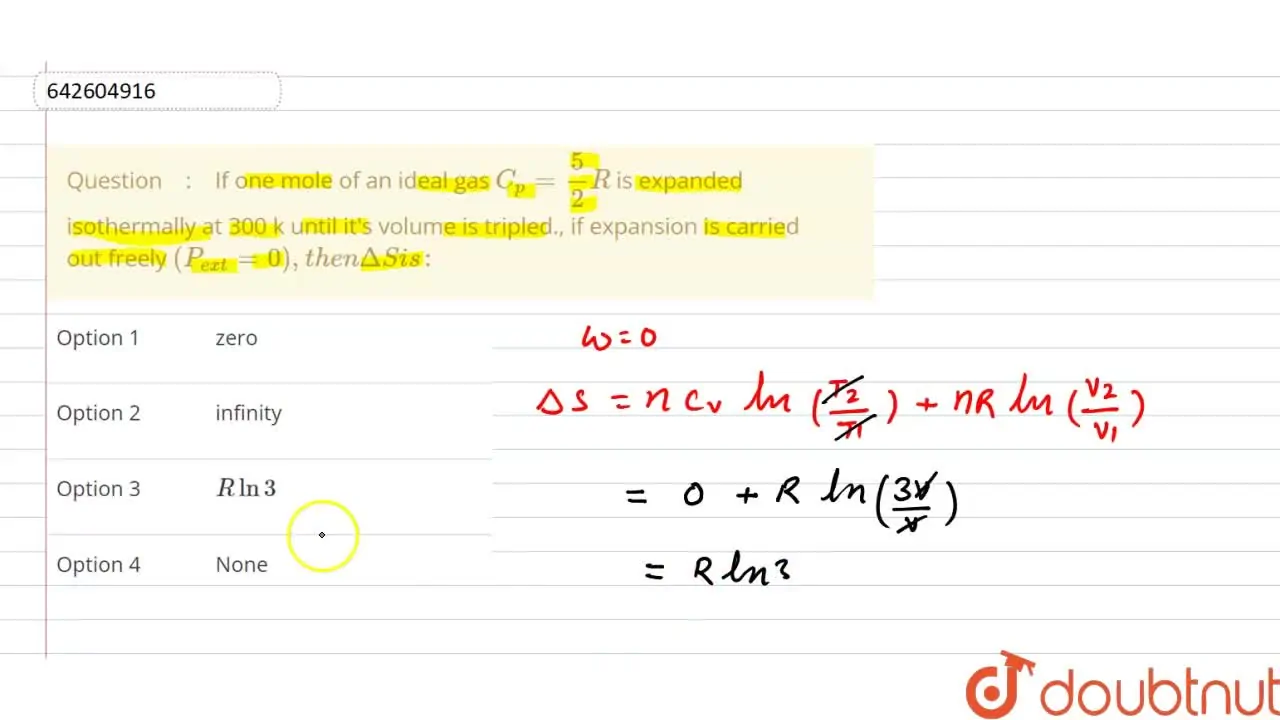If one mole of an ideal gas Cp=52R is expanded isothermally at 300 k until it's volume is tripled., if expansion is carried out freely (Pext=0),thenΔSis:
zero
infinity
Rln3
None
The correct Answer is:C
ΔS will be same because entropy is a state function.
Related Playlists
Similar Questions
In previous problem if expansion is carried out freely (Pext=0), then:
View SolutionIf one mole of an ideal gas (Cp.m.=52R) is expanded isothermally at 300K until it’s volume is tripled, then change in entropy of gas is:
View SolutionOne mole of an ideal gas is expanded isothermally at 300 K until its volume is tripled . Find the values of ΔSsys under the condition.
View SolutionAn ideal gas at 300K is expanded isothermally to double its volume,then pressure of the gas will be
View SolutionFor an ideal gas, the work of reversible expansion under isothermal condition can be calculated by using expression =−nRTln.VfVi. A sample containing 1.0 mol of an ideal gas is expanded isothermally and reversible to ten times of its original volume, in two separate experiments. The expansion is carried out at 300 K and at 600 K respectively. Choose the correct option
View Solution5 mole of an ideal gas of volume is expanded against vaccum to make its volume 2 times, then work done by the gas is:
View Solution1mol of an ideal gas is allowed to expand isothermally at 27∘C untill its volume is tripled. Calculated DelyasysS and ΔunivS under the following conditions:
a. The expansion is carried out reversibly.
b. The expansion is a free expansion.View SolutionTwo moles of an ideal gas is expanded irreversibly and isothermally at 37∘C until its volume is doubled and 3.41KJ heat is absorbed from surrounding. ΔStotal(system +surrounding) is:
View SolutionOne mole of an ideal gas at 300K is expanded isothermally from an inital volume of 1 litre to 10 litres. The ΔE for this process is (R=2calmol−1K−1)
View SolutionTwo moles of an ideal gas expanded isothermally and reversibly from 1L to 10L at 300K. What is the enthalpy change?
View Solution


